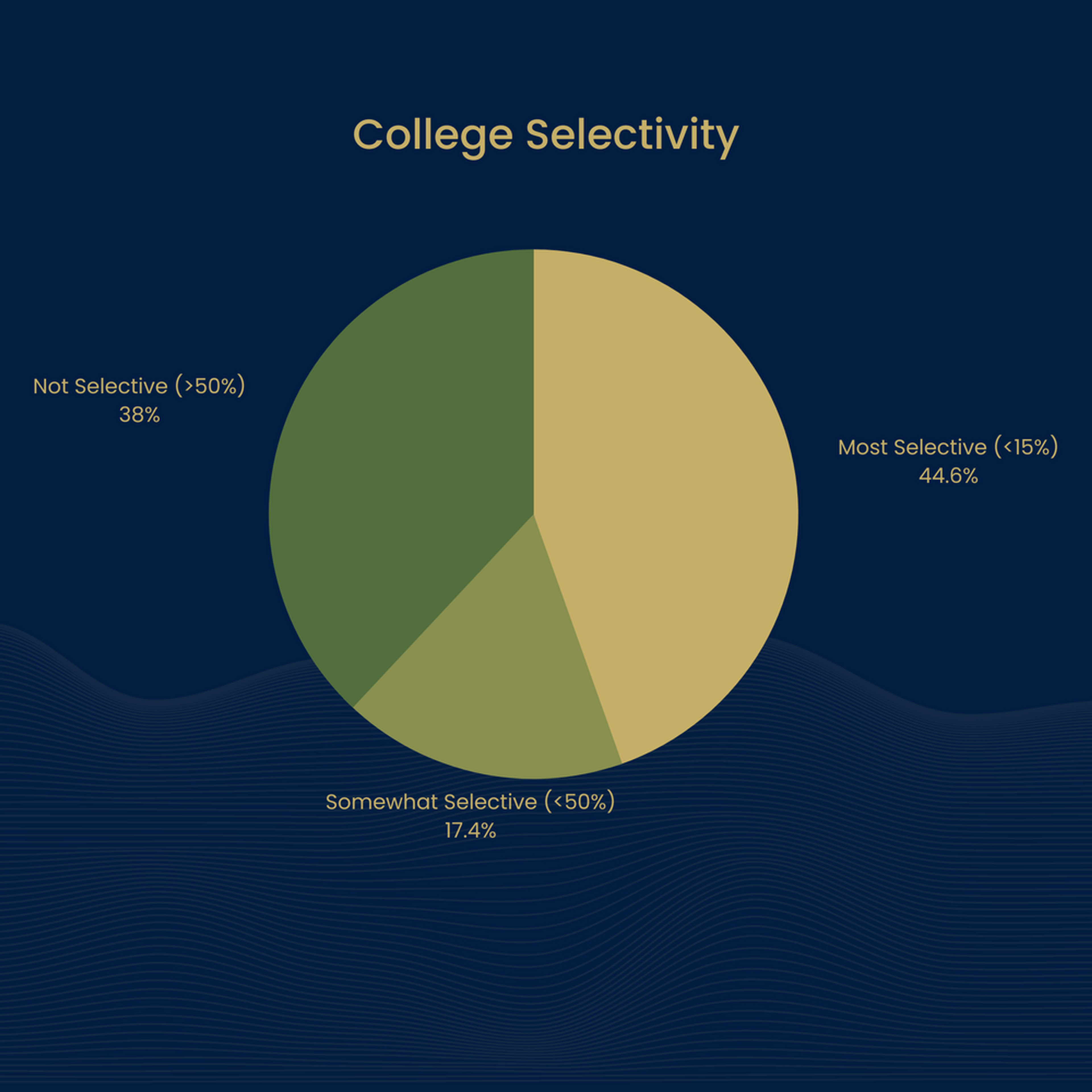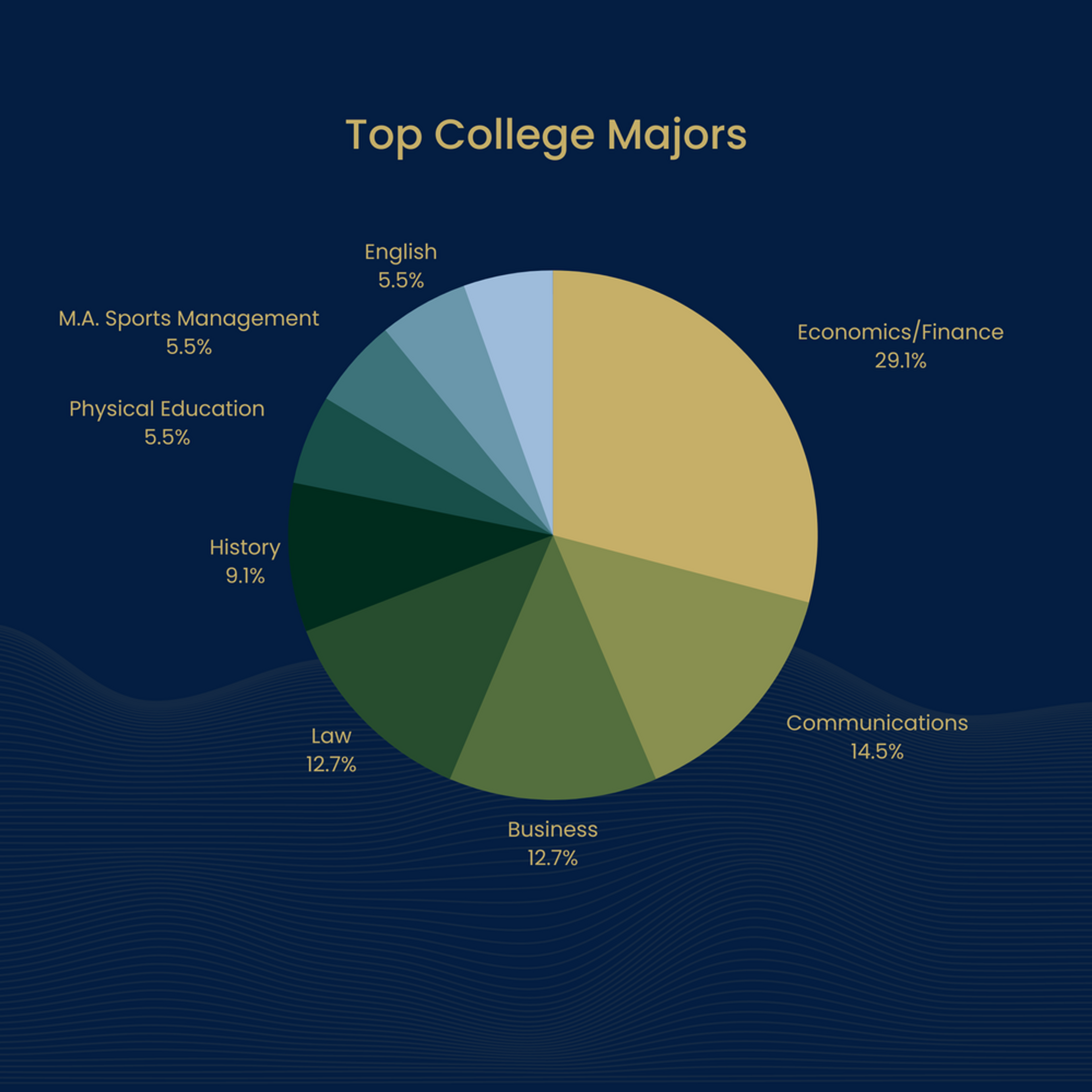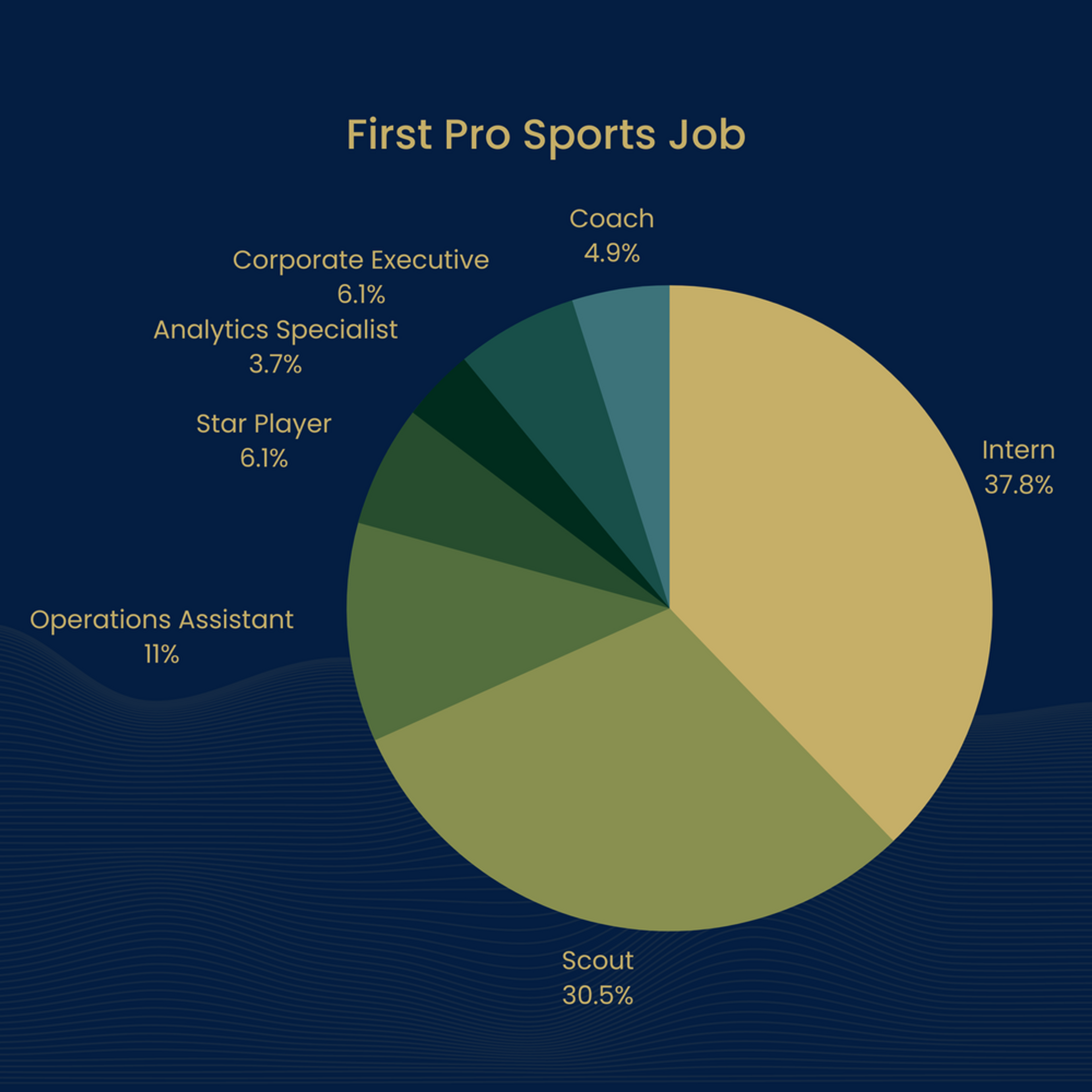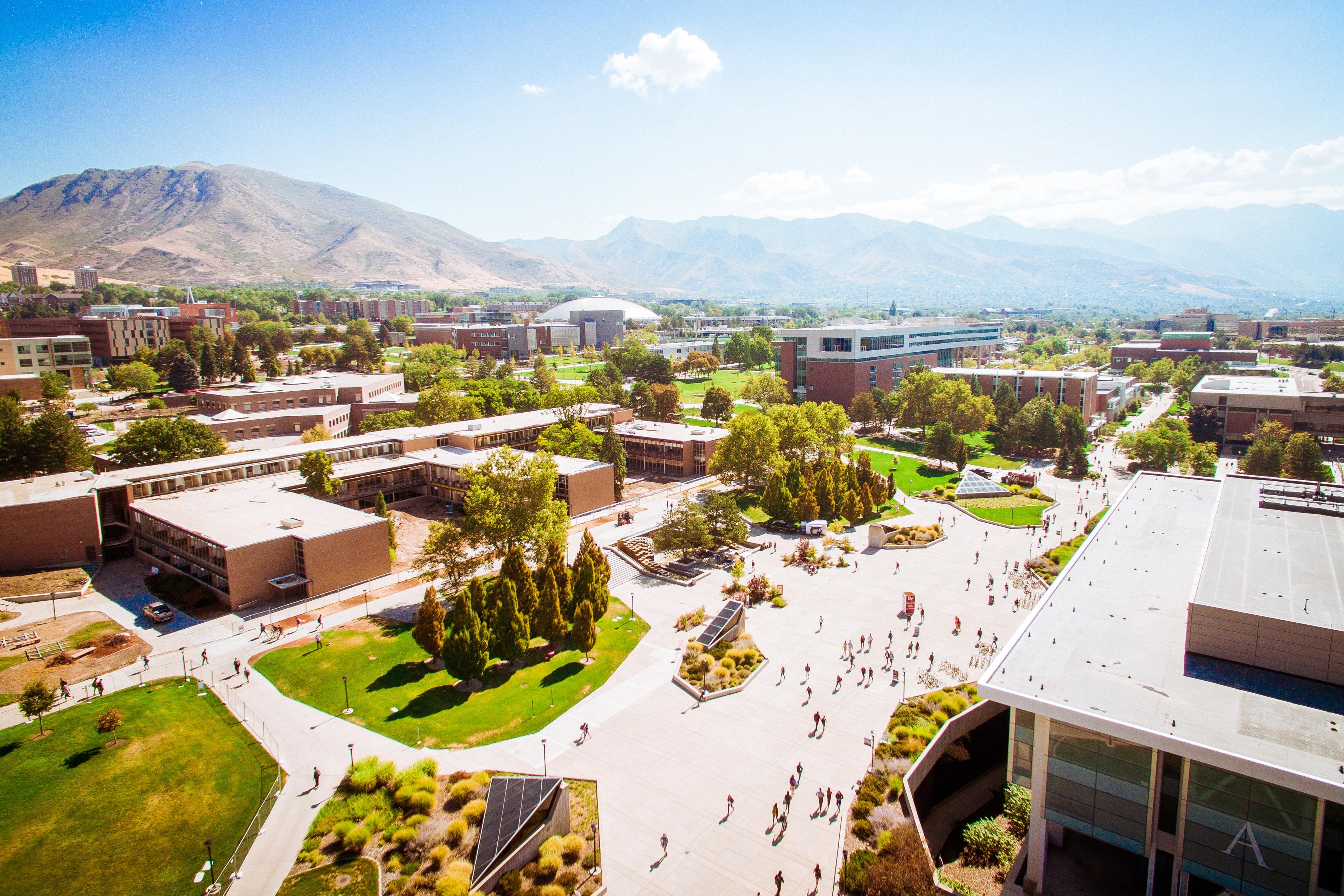How to Get a Job in Professional Sports–and Become a General Manager
For student-athletes and others who love sports, a career in a professional sports organization provides the perfect amount of prestige and proximity to the game. Here's how to land a job in this competitive industry.

By Joe S.
Expert College Admissions Guide for High School Students
Posted June 13, 2025

Join a free event
Learn from top coaches and industry experts in live, interactive sessions you can join for free.
There are few jobs more appealing to high school and college athletes than becoming an executive for a professional sports organization and it's easy to see why. It’s a highly prestigious, visible job that comes with a lot of perks. Sitting in a luxury box watching your team compete is as close to being on the field as it gets. The pinnacle of this profession is General Manager. No one in an organization has more responsibility, authority, and impact on the final product than the GM. It's unsurprising that student-athletes naturally gravitate toward this position when considering what major, college, and career they want to pursue after their playing days are finished.
So, what is the best path to follow to reach the front office, and eventually sit in the General Manager’s chair? After analyzing the journey of 92 current General Managers across the NFL, NBA, and MLB, some interesting patterns started to emerge.

Do you have to go to an elite college?
GMs come from colleges all over the spectrum. It is a commonly held belief that the path to the top is reserved for Ivy League graduates. In reality, fewer than half of GMs come from a school with an admissions rate of 15% or below. Almost 40% come from a school with an admissions rate of over 50%. It matters less where a student attends and much more what they do during their time in college.

What is the most common major?
Once again, there is no set path. Close to 30% majored in economics or finance. This might seem strange for a career in sports, but the biggest trend of the past 30 years has been the integration of advanced statistics and mathematics into every facet of a sports organization. The ability to understand numbers and manipulate data is a vital asset to anyone with aspiring front-office ambitions.

How do I break into the business?
The hardest part of working in a high-demand industry like professional sports is getting that first big break. One of the most consistent patterns that emerged in the analysis of the career paths of current MLB, NFL, and NBA general managers was where they began their journey. Only a small handful started in the sports world in any meaningful role–usually as lawyers, agents, or corporate executives who then leveraged their connections to rise to the top. The vast majority of GMs started as unpaid interns, low-level scouts, or part-time operations assistants.
The overall conclusion of this analysis is that there is no magic path to one of these highly coveted positions. Each general manager took their own unique route, which varied wildly. Brian O’Halloran of the Boston Red Sox was a Russian Studies major whose first job was with a Moscow logistics company. He then returned to the states, got his MBA, and landed an internship with an MLB team. John Lynch of the San Francisco 49ers and Elton Brand of the Philadelphia 76ers were star players for over a decade. This launched them directly into the highest levels of organizations.
There is, however, one key feature that the vast majority of these general managers share and it is absolutely crucial to navigating the current world of professional sports. Since math and analytics have become a more important part of the game, there's been a rising debate over what is the primary decision driver. On one hand, you have knowledge of the game and strategy, and an aptitude for building relationships with players. On the other is the ability to manipulate statistics, understand data, and make calculations based solely on numbers.
The answer to the debate is both. Those that succeed in this field are able to leverage an intimate understanding of the game and raw, analytical skills to make the best decisions.
What should a high school student do?
It is no longer adequate to be a “stats guy” or a “baseball guy.” To be a competitive candidate for front office jobs of the future, students are going to need to have knowledge and fluency in both worlds.
For decades, general managers were former players and coaches who knew the game from personal experience on the field. The analytics revolution forced an overcorrection in the opposite direction. “Quants” ruled the front offices at the beginning of this century after Moneyball. But, organizations gradually came to the realization that sports are not played on a spreadsheet, but by human beings who have emotions, make mistakes, drop into slumps, and have complicated relationships with their teammates and coaches. All things that can affect the product on the field.
General managers of the future need to be able to straddle both worlds and students should proceed with the intent to develop both skill sets. To become a GM today, candidates must come out of college with a solid understanding of math, statistics, and data, as well as a deep connection to the game.
How does a student develop analytic skills and credibility?
The best way is to major in something heavily related to math and analysis and both will be absolutely crucial to future opportunities. As the above chart displays, 30% of current general managers majored in economics or finance. Both of these fields have a huge math component and involve statistics and real-world decision-making. Students who major in these fields will graduate with the ability to understand and manipulate large, complex data sets and utilize that information to develop actionable strategies. This is crucial knowledge for the future of professional sports.
A second path is to find others interested in sports analytics and join or create a club. If the best way to learn is by doing, finding a group of peers with whom you can dive deeply into the subject provides a community and resources to use as a launching pad into the business. These groups are often able to attract guest speakers to come and talk about their experiences as well. This can be an incredibly beneficial opportunity to meet current front office members and start to develop a network.
How does a student develop knowledge of their sport?
Get as close to the game as possible. If a student wants to develop their knowledge of the sport and build a valuable, connected network, the most important thing to do is immediately get involved in the sport at their school. Go through the school’s athletics department or any professional teams in the surrounding area. Outside of the Power-5 football conferences (Pac-12, SEC, ACC, Big Ten, Big 12), college sports are perpetually underfunded. Coaching staffs are stretched thin under the workload required to be successful in an incredibly competitive landscape. There are countless valuable contributions that undergraduates can make to a program to start building their knowledge of the game.
Look for the most basic entry point into the organization. At most places, that will be as an undergraduate student manager. Responsibilities for this role include equipment inventory, travel preparation, practice and game set-up, stat tracking, and putting out the myriad of fires that pop up every day. In this role, here are a few things you want to accomplish in order to have a chance for advancement.
- Goal #1: Prove what a competent, reliable, hard worker you are, someone who can shoulder more responsibility in future years. Ingrain yourself into the team culture. Attend every game and practice. Take as much responsibility as you can without overdoing it.
- Goal #2: Identify areas of interest and the program's needs. Do they need help planning their recruiting travel? Offer to help the recruiting coordinator figure out the logistics of their summer schedule. Do they have data that could be analyzed to provide valuable insights, but not enough time in the day or statistical expertise to get it done? Offer to create some reports that could be helpful for future decision-making. Do they need someone to coordinate information for professional scouts? Volunteer to be the point of contact for visiting scouts and start building relationships in those organizations.
In the following seasons, grow the role and execute on these areas of need. Create a reputation as someone who is incredibly reliable and valuable to the organization. The head coach of that college team is often one of the most valuable references you could have for future applications and a good relationship will go a long way. During the off-season, try to find professional or amateur organizations to work for in a paid or unpaid capacity. Here are some examples:
- Cape Code Summer Baseball League
- Seasonal Jobs at MLB Spring Training
- NFL Intern Opportunities
- NBA Intern Opportunities
By the time the student graduates from college, they will have a long track record of success in an organization along with high-profile and valuable recommendations. They will also have a network with members of professional organizations like scouts and front office personnel. They will have a deeper understanding of what it takes to run an organization and how to find a niche inside a team, and they will be able to speak the sport's language, which is an underrated but incredibly valuable skill.
What sorts of colleges provide the best opportunities to succeed?
Not all colleges will provide equal access to these sorts of opportunities, but there are some features that can be weighed in the college selection process. The more of these that are available, the easier it will be to build up an impressive college resume:
- A Profitable College Football Team: Even if the student isn’t interested in football, having a successful football team on campus that pulls in TV rights deals will provide incredible resources throughout the athletics department. Being in a Power-5 athletics department with a football team is a completely different experience than a mid-major, small football school.
- The Right Level of Success & Prestige: Becoming a student manager for the football team at the University of Alabama, the basketball team at the University of Kentucky, or the baseball team at Vanderbilt is incredibly difficult, to say the least. There is immense competition for even unpaid laundry interns and many more layers of people between an undergraduate and the head coach. Nick Saban certainly does not know the names of Alabama football undergraduate managers.
The next tier of colleges down is the sweet spot. The second-level Power-5 athletics departments have the prestige and reputation to promote a student into a future career, but not enough resources that they don’t need tons of help. Middle-of-the-pack, Power-5 programs will have ample opportunity for students, without excessive competition for entry-level jobs or too much distance between the managers and head coaches. - Access to Professional Organizations: This usually translates to being in a big city. Undergraduate internships with the NBA/MLB/NFL organizations are the best way to get a foot in the door. 40% of current general managers across the three major sports started their first job with a pro organization as an intern. If you can start that process while still in school, it's a huge advantage and can save years of grinding after graduation when factors like rent and food become all too real. Access to these teams is mostly based on location; it’s hard to intern for a pro team while in Tuscaloosa.
- Minimize Student Loan Debt: The first job in a professional organization will most likely be unpaid (or very close to unpaid), and also be located in a major city where the cost of living is relatively high. Low-level employees in these major sports franchises work incredibly long hours for very little money as they try to prove their worth. They pack tightly into shared apartments in order to defray costs. Living in Los Angeles or New York on $20,000/year is incredibly difficult, and the last thing that a young worker wants in that situation is to have to pay back student loans instead of buying food. Students who leave college without debt have a massive advantage because they have the freedom to take those low-level internship jobs and scrape by on next-to-nothing salaries. Meanwhile, their counterparts with loans are forced to give up on their dreams and take a more practical job with a steady paycheck.
Now that we've looked at the criteria, here at ten schools that rank highly. These programs are well-situated to feed students into jobs at major professional sports organizations.
- Arizona State University
- Located in Phoenix, AZ
- Power 5 Football Athletics Department
- Relatively successful athletic history, but not in the top tier
- MLB/NBA/NFL/NHL teams, Major PGA Golf Tournament, & 15 MLB Spring Training stadiums looking for seasonal workers every spring
- University of Miami
- Located in Miami, FL
- Power 5 Football Athletics Department
- Relatively successful athletic history, but not in the top tier
- MLB/NBA/NFL/NHL teams and close to other spring training locations
- University of Colorado - Boulder:
- Located 40 minutes from Denver, CO
- Power 5 Football Athletics Department
- Relatively successful athletic history, but not in the top tier
- MLB/NBA/NFL/NHL teams
- Boston College:
- Located on the outskirts of Boston, MA
- Power 5 Football Athletics Department
- Relatively successful athletic history, but not in the top tier
- Small school with less competition between students for positions
- MLB/NBA/NFL/NHL teams, Boston Marathon, & Annual Sloan Sports Analytics Conference.
- University of Washington:
- Located in Seattle, WA
- Power 5 Football Athletics Department
- Relatively successful athletic history, but not in the top tier
- MLB/NBA/NFL/NHL teams
- Texas Christian University
- Located outside Dallas, TX
- Power 5 Football Athletics Department
- Relatively successful athletic history, but not in the top tier
- Small school with less competition between students for positions
- MLB/NBA/NFL/NHL teams, Major PGA Tournaments
- University of Pittsburgh
- Located in Pittsburgh, PA
- Power 5 Football Athletics Department
- Relatively successful athletic history, but not in the top tier
- MLB/NFL/NHL Teams
- Vanderbilt University
- Located in Nashville, TN
- Power 5 Football Athletics Department
- Relatively successful athletic history, but not in the top tier
- Small school with less competition between students for positions
- NFL/NHL teams, Major PGA Tournaments
- University of Minnesota
- Located in Minneapolis, MN
- Power 5 Football Athletics Department
- Relatively successful athletic history, but not in the top tier
- Small school with less competition between students for positions
- NFL/MLB/NBA/NHL teams
- University of Maryland
- Located 30-min from Washington DC & 45-min from Baltimore, MD
- Power 5 Football Athletics Department
- Relatively successful athletic history, but not in the top tier
- Small school with less competition between students for positions
- Washington DC: MLB/NFL/NHL/NBA Teams
- Baltimore MD: MLB/NFL/NHL/NBA Teams
I hope you found this a helpful guide as you think about your future. If you'd like to work with me on anything related to careers in professional sports or the undergraduate admissions process, head to my profile on Leland.

Written by Joe
0.0
(0)
I provide private, one-on-one college advising for high school students who are looking to enroll in universities. I guide you through this important and complex process from start to finish. Each applicant is provided a custom admissions roadmap tailored to match students with the right college. My goal is to take the pressure off families and to introduce new and innovative choices that provide applicants with the experience they want while setting them up for a bright future.
Joe has helped clients get into organizations like:
Browse hundreds of expert coaches
Leland coaches have helped thousands of people achieve their goals. A dedicated mentor can make all the difference.


























